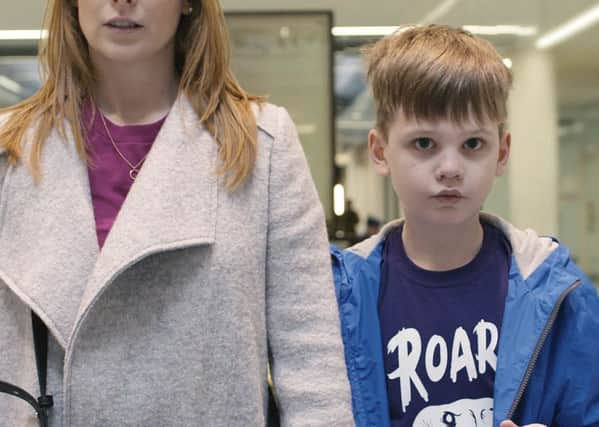Little information goes a long way with autism awareness


The first episode of acclaimed BBC One drama The A Word featured a heart breaking scene. Joe Hughes, five-years-old and newly diagnosed as being on the autism spectrum, isn’t invited to a classmate’s birthday party with all of the other children. This is hard for Joe to understand and it’s incredibly difficult for his parents to bear – they are proud and protective of their lovely little boy.
I found this particularly moving because I know it reflects the experiences of so many of the 57,000 autistic people in Scotland and their families. I often hear stories about children who are excluded from parties, mums and dads who are painfully aware of other parents rolling their eyes, and adults who are taunted as they go about their day.
Advertisement
Hide AdAdvertisement
Hide AdMost people in Scotland – a massive 99.5 per cent – have heard of autism; we know ‘the A word’. But just 15 per cent of autistic people and their families believe that the public understands the condition in a meaningful way. This World Autism Awareness Week (2-8 April), The National Autistic Society Scotland launched its biggest ever public understanding campaign, Too Much Information, to address that enormous gulf between awareness and understanding.
We have developed a campaign that accurately represents the autism community whilst making sense to people with no knowledge of the condition. The activity we have planned for the next three years is interactive and attention-grabbing, including a short film starring an autistic child actor, a map that lights up locations when residents pledge to increase their knowledge, and virtual reality equipment which allows users to experience life through the eyes of an autistic child. Look out for it in a shopping centre near you soon.
The campaign takes its name from the experience of being autistic. The sensitivity to sights, smells and sounds that can make everyday places nightmarish. The feeling of there being no filter. Being very skilled in something that others aren’t, whilst really struggling with what seems to come naturally to everyone else. This feeling of being overloaded – Too Much Information - can lead to a meltdown, a loss of behavioural control resulting in screaming, crying, kicking or complete withdrawal. A meltdown could look like a naughty child having a tantrum or an adult behaving like a “weirdo”, and members of the public often respond by staring and tutting. That kind of judgemental response makes what is already an extremely distressing and embarrassing situation even more difficult.
Through our research we found that autistic people and their families begin to retreat over time. They go to the supermarket late at night when the aisles are empty, children play with their Xbox instead of their classmates, and family days out just stop. More than two-thirds of autistic people told us that they feel socially isolated, their worlds become smaller and smaller as they try to avoid public judgment. This is the real impact of staring and tutting, and I will not accept a Scotland where more than 230,000 of our family members, neighbours and colleagues feel so misunderstood that they can’t live their lives.
Significant steps forward are already being taken. This week we launched an exciting new project in partnership with Aberdeenshire Council to increase understanding amongst its residents and make Aberdeenshire Scotland’s first “autism-friendly” region. Tonight we are holding a hustings to ask the five main political parties how we can take that vital work even further and make Scotland an autism-friendly nation.
Let me be clear: I do not believe that the public sets out to be unkind to autistic people. A lack of understanding means that snap judgments are made based on behaviour, and people don’t really think about what they are seeing and the hurt their response could cause.
And I don’t expect everyone to become an autism expert. Autistic people and their families told us their lives would be easier if the public knew just five key things: sometimes they need extra time to think and answer questions, they can have anxiety in social situations, unexpected changes can cause anxiety, they may have sensory sensitivities, and overload can lead to meltdown.
Understanding five aspects of a condition that affects more than one in 100 people feels like a very reasonable request – that is enough, but not too much, information.
Advertisement
Hide AdAdvertisement
Hide AdTo find out more about Too Much Information, please visit autism.org.uk/tmi
• Jenny Paterson, director of The National Autistic Society Scotland
SEE ALSO